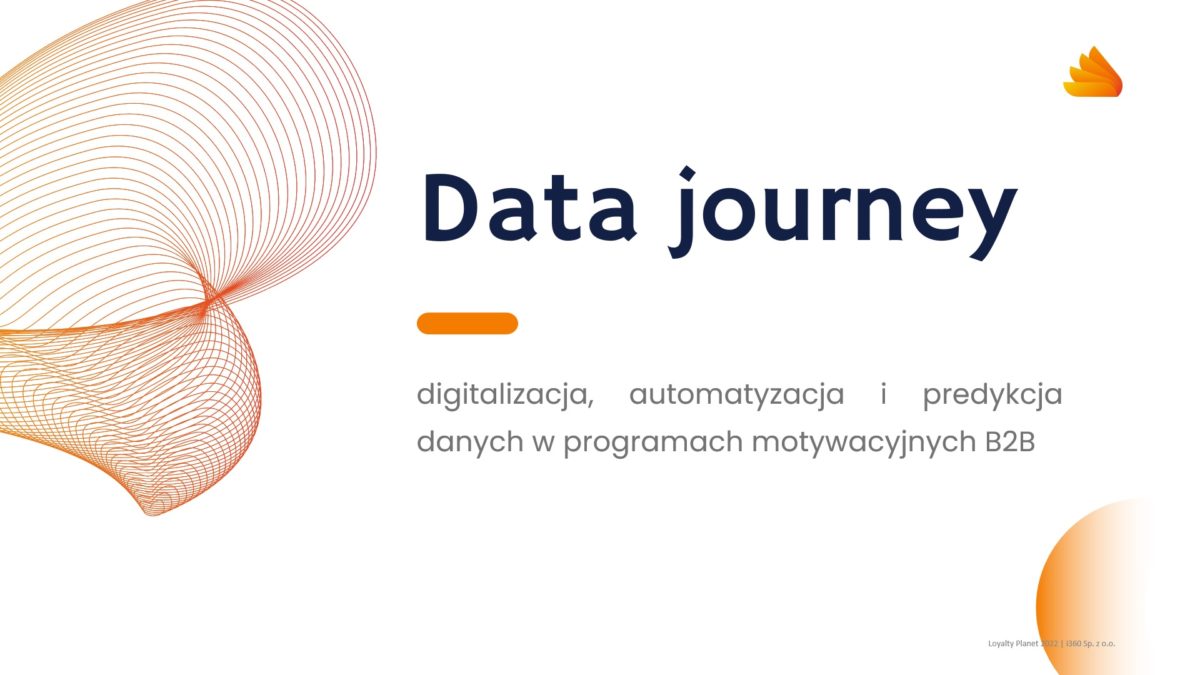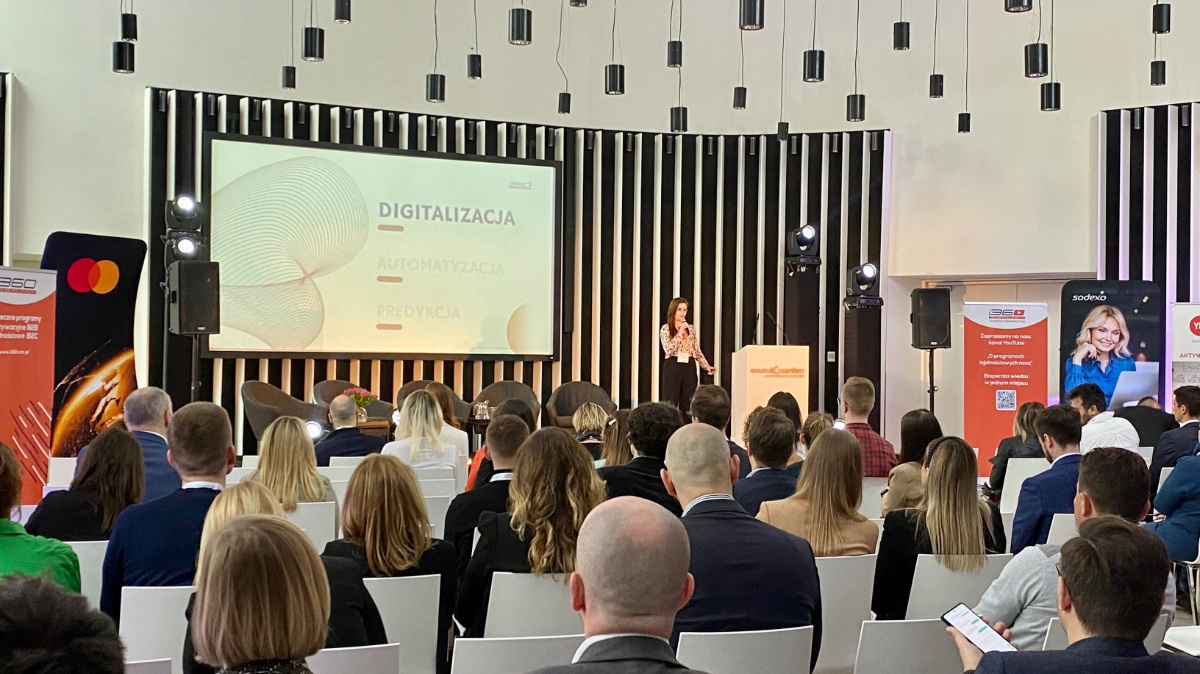Loyalty management in traditional trade
We recently gave a lecture, “Data journey: digitalization, automation and data predictions in B2B incentive programs”, during the Loyalty Planet Conference, where Karolina Rojecka, a Market Analyst & Project Manager, shared how we manage data workflows at i360 in B2B incentive programs using digitalization, automation and prediction.

The aim of the presentation was to explain the experience of a B2B project implemented for an FMCG manufacturer that handles more than 50% of its volume in the traditional trade market. The entire decentralized system of sales intermediation – where the life of a product begins on the production floor, then passes through several intermediaries before it reaches the retail store in the right place, with the right stock levels and promoted in the right way – requires proper management at every stage, which involves managing the loyalty of the sales intermediaries.
Digitalization
While speaking about digitalization, we mean the stage of registering the participants for the program. Since the participants of B2B projects can earn rewards of 5-digit amounts per month, this obliges the organizers of the programs to meet all the requirements resulting from the legislation, the subject of which is signing a relevant agreement. A platform for the electronic circulation of contracts, which comprehensively digitizes the entire process, is a universally used solution. We are talking about a system that optimizes the many steps leading to the establishment of a formal agreement with a contractor while allowing an individual approach to the set KPIs or partnership conditions.
Automation
The next stage of the data flow process in a B2B incentive program is verifying the participants’ activity and rewarding them for achieving the set goals. In the presented project, we faced the challenge of having over 100 different transaction systems reporting the movement of the participants. We were presented with a plan to automate two stages – data integration and data processing. Data integration was automated with a design that pulls the data from the distributors’ trading systems at specific time cycles. It then unifies them and creates one standardized set of data. On the other hand, data processing means creating algorithmic models that automatically process the collected set. This process results in a more than five-fold reduction in data processing time and a dynamic response to the participants’ needs, such as immediate rewards for demonstrated activities.
Prediction
The final stage, which includes data workflow management, is prediction. The visual result of the study is the intuitive dashboards. Most projects are based on “just-in-time” dashboards. This means analyzing historical data and presenting it dynamically. To meet the needs of studying the sales results of seasonal products, for example, mechanisms have been created that predict the data through the AI mechanisms. All this creates a competitive advantage that allows us to realistically plan further marketing activities and to respond to changes in the market in a timely manner. Creating an automated solution is also vital in supporting the planning activities for the people responsible for estimating and formulating the KPIs in subsequent periods.
i360 Loyalty Software
A system like the i360 Loyalty Software should provide the necessary basis for building an effective consumer program. A consumer program can only be successful when the product is on the shelf, and this is what our solutions offer.
2

This is a great article on Loyalty management and training as retention of consumers is an important aspect for any business.
One of the loyalty program in UAE is BOUNZ Rewards